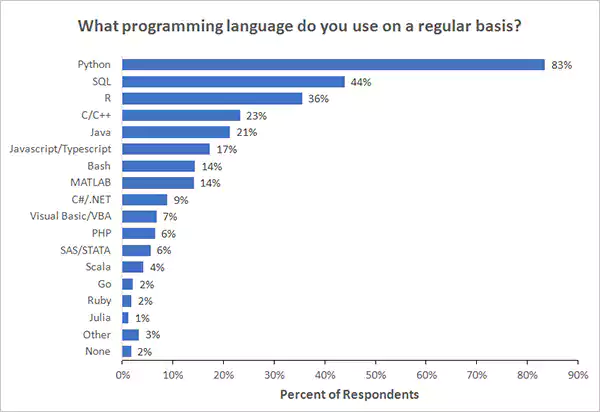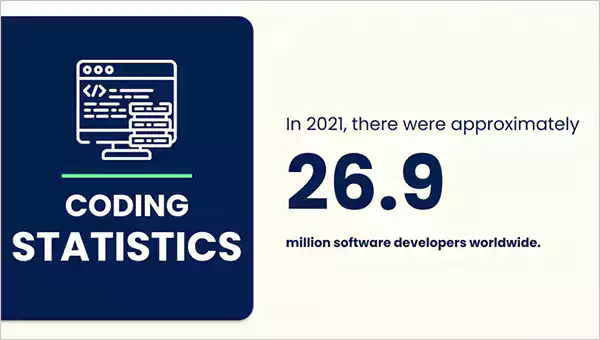8 Tips To Help You Learn Programming Faster
The world has changed a lot since the internet boom of the 90s.
Many industries have moved on from manual labor to online programming and tech.
Today, a ton of companies are looking for top-rate developers to build their systems, apps, and websites.
But, while programming is in high demand, learning to code can still be pretty confusing for even professionals.
And that’s not all, new languages pop up every day and it’s up to the individuals to learn that new language and keep up with market trends.
No matter, if you’re a student or a professional, programming languages, can get pretty confusing with all the syntaxes and parameters.
However, you don’t need to worry because we have your back.
So, how do you brush up on your skills or learn a language faster?
Here are some tips that may help improve your skills and comprehend coding a lot faster than ever before.
Set Up Clear Goals
First, decide on which career pathway you want to follow in the software development industry.
You can either learn to code or gather better skills to become a programmer.
Different career paths will have different skill or programming language expertise requirements, so setting up clear goals will help you memorize much faster.
A programmer basically converts logic into a language that a computer can understand.
While coders only need to acquire basic skills without any software tools.
They often have to work on large-scale projects to design fully functional software solutions.
Unlike programmers, coders use simple text editors to type away lines of code without any modeling/analyzing tools.
Do some research on coding vs. programming and find out which career suits you the most.

Programming languages that are used the most by programmers across the world.
Check Out Online Resources
Before moving on to the next phase, you have to gather some learning materials for your academic journey.
A lot of academic resources are available for both amateur and seasoned professionals alike.
Besides, there are plenty of YouTube videos that will help you learn and understand the basics of programming.
It’s a good idea to also think about joining boot camps to master coding in a short time with extra flexibility.
From free tutorials to paid courses, use whatever educational pathway you find most comfortable.
Just keep in mind that future employers will be more interested in your skills than your creds.
DID YOU KNOW?
More than 700 programming languages have been introduced since the 1970s, and each one comes with its own unique features and ways to help computers process information.Each generation of language introduces something new that is better than any of the previous generations in terms of usability, application, and speed.
Learn The Basics
The second phase involves learning the basics.
In this stage, you will be introduced to the most popular language out there, i.e., C++, so you can become familiar with the landscape.
Grasp the logic behind how languages work and become in tune with the way a machine thinks. Memorize the rudiments of C++ and then move on to advanced languages.
If you go by the self-taught route, it takes 6 to 12 months to master the requirements, while grasping the art of coding itself takes more than a year with lots of practice, patience, and perseverance.
Get Ample Practice
As we just said, practicing persistently makes a programmer perfect.
Some students like to practice for half an hour a day, whereas the studious ones aspire to practice for hours.
The key here is to add some consistency to your software development schedule.
This is because the more time you put in, the more you get used to the language and the faster you master it.
Never forget that your punctuality is the cornerstone on your road to programming success.
That’s what makes software development different from traditional subjects; it’s entirely practice-based.
Code with Your Hand
Try to go a little old-school and practice your coding skills on paper.
A lot of students skip this part as they can’t debug their code that easily when it’s in the shape of a few lines scribbled on a notebook.
But not relying on autocompletion or error prompts is a great way to reinforce basic concepts for beginners. That’s how you will foster a deeper understanding of the code.
What’s even more beneficial is that you can prepare for technical interviews by practicing on paper.
Technical interviews involve coding on a whiteboard so the examiners can check your ability to turn a simple flowchart into code without an IDE.
Learn to Fix the Errors
Anyone can write a decent line of code, but it takes a professional to quickly identify the error when it doesn’t work.
If you want to master it faster, then understand the logic behind how a line of code works.
And learning how to fix the errors is the best way to grasp the machine’s logic.
Find out what some common errors mean, what causes them to emerge, and how to fix them.
Debugging will improve your problem-solving skills, promote a deeper understanding of code, and prepare you for real-world scenarios.
Don’t forget that identifying and fixing errors is a common task in software development.

As of 2021, there were 26.9 million software developers worldwide. This number is expected to increase to 28.7 million by 2024.
Discuss
Discuss your journey online by joining online communities dedicated to programming.
Share your passion for software development there and try to turn this into a hobby so you can invest a lot more time into it.
Use platforms like Twitter and LinkedIn to connect with other programmers, both students and professionals.
Create your portfolio on GitHub to kickstart your career.
All this socialization will keep you motivated to acquire knowledge and connect to a wide pool of talent in the world.
Review Others’ Codes
Even reviewing someone else’s code can help you get a good grasp on your efficiency.
You may pick up a different style and learn some new best practices, greatly improving your skills.
Give your problem-solving skills a much-needed upgrade and find new ways to tackle the same old challenges from someone else’s perspective.
Also, reviewing another person’s code fosters collaboration.
This collective learning experience will help you grow as a coder, contributing to a more comprehensive understanding of programming.
Conclusion
To sum it all up, you have to set clear goals and decide which career pathway you wish to pursue, coding or programming.
Then, learn the basics via online resources (like academies and coding boot camps).
Watch useful content on how to code and then hone your skills by practicing on paper.
Teach, discuss, review, and write about programming to better understand this science.
Practice makes a programmer efficient, but don’t forget to take a few breaks to avoid burnout during your studies.
